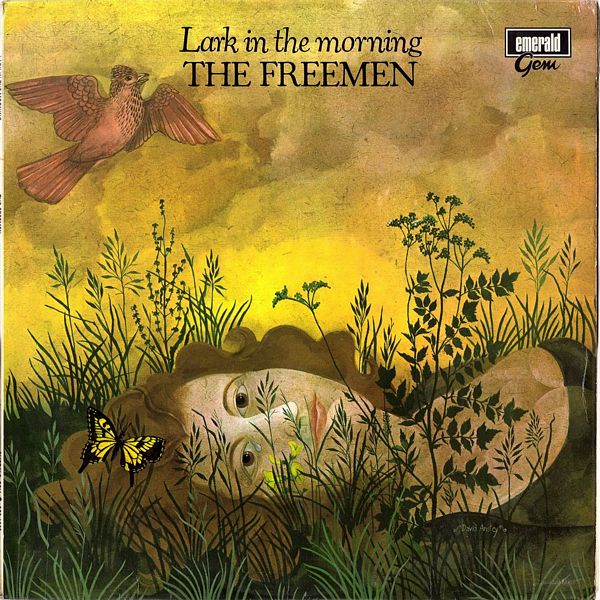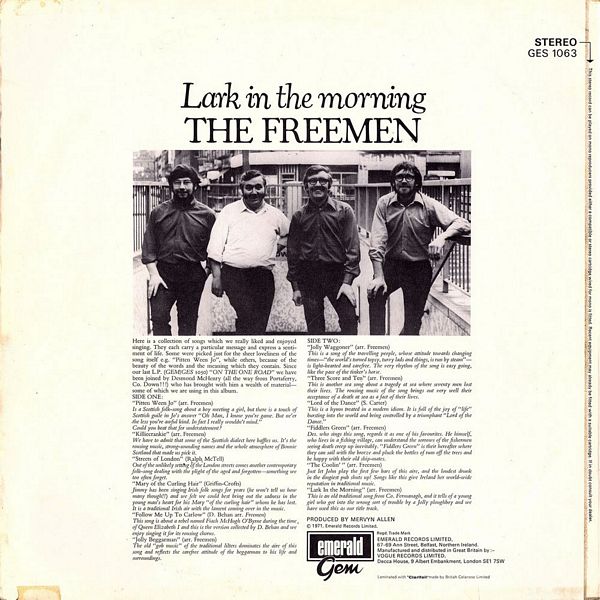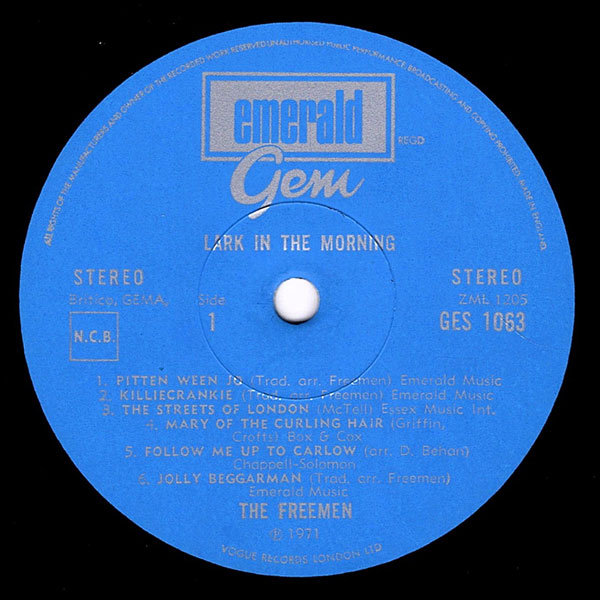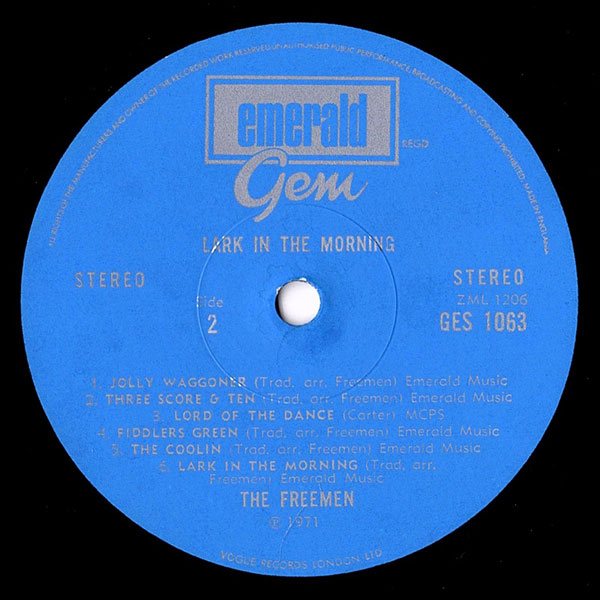

|



|
Sleeve Notes
Here is a collection of songs which we really liked and enjoyed singing. They each carry a particular message and express a sentiment of life. Some were picked just for the sheer loveliness of the song itself e.g. "Pitten Ween Jo", while others, because of the beauty of the words and the meaning which they contain. Since our last L.P. (GEM/GES 1050) "ON THE ONE ROAD" we have been joined by Desmond McHenry (all the way from Portaferry, Co. Down!!!) who has brought with him a wealth of material—some of which we are using in this album.
Pitten Ween Jo — Is a Scottish folk-song about a boy meeting a girl, but there is it touch of Scottish guile in Jo's answer "Oh Man, I know you're game. But ne'er .the less you're awful kind. In fact I realty wouldn't mind." Could yon beat that for understatement?
Killiecrankie — We have to admit that sonic of the Scottish dialect here baffles us. It's the rousing music, strong-sounding names and the whole atmosphere of Bonnie Scotland that made us pick it.
Streets of London — Out of the unlikely setting of the London streets comes another contemporary folk-song dealing with the plight of the aged and forgotten—something we too often forget.
Mary of the Curling Hair — Jimmy has been singing Irish folk songs for years (he won't tell us how many though!!) and we felt we could best bring out the sadness in the young man's heart for his Mary "of the curling hair" whom he has lost. It is a traditional Irish air with the lament coming over in the music.
Follow Me Up To Carlow — This song is about a rebel named Fiach Mc Hugh O'Byrne during the time, of Queen Elizabeth I and this the version collected by D. Behan and we enjoy singing it for its rousing chorus.
Jolly Beggarman — The old "gob music" of the traditional lilters dominates the aire of this song and rejects the carefree attitude of the beggarman to his life and surroundings.
Jolly Waggoner — This a song of the travelling people, whose attitude towards changing times—"the world's turned topsy-turvy lads and things, is run by steam"—is light-hearted and carefree. The very rhythm of the song is easy going, like the pace of the tinker's horse.
Three Score and Ten — This another sea song about a tragedy at sea where seventy men lost their lives. The rousing music of the song brings out very well their acceptance, of a death at sea as a fact of their lives.
Lord of the Dance — This a hymn treated in a modern idiom. It is full of the joy of "life" bursting into the world and being controlled by a triumphant "Lord of the Dance."
Fiddlers Green — Des, who sings this song, regards it as one of his favourites. He himself, who lives in a fishing village, can understand the sorrows of the fishermen seeing death creep up inevitably. "Fiddlers Green" is their hereafter where they can sail with the breeze and pluck the bottles of rum off the trees and be happy with their old ship-mates.
The Coolin' — Just let John play the first few bars of this aire, and the loudest drunk in the dingiest pub shuts up! Songs like this give Ireland her world-wide reputation in traditional music.
Lark In the Morning — This an old traditional song from Co. Fermanagh, and it tells of a young girl who got into the wrong sort of trouble by a Jolly ploughboy and we have used this as our title track.